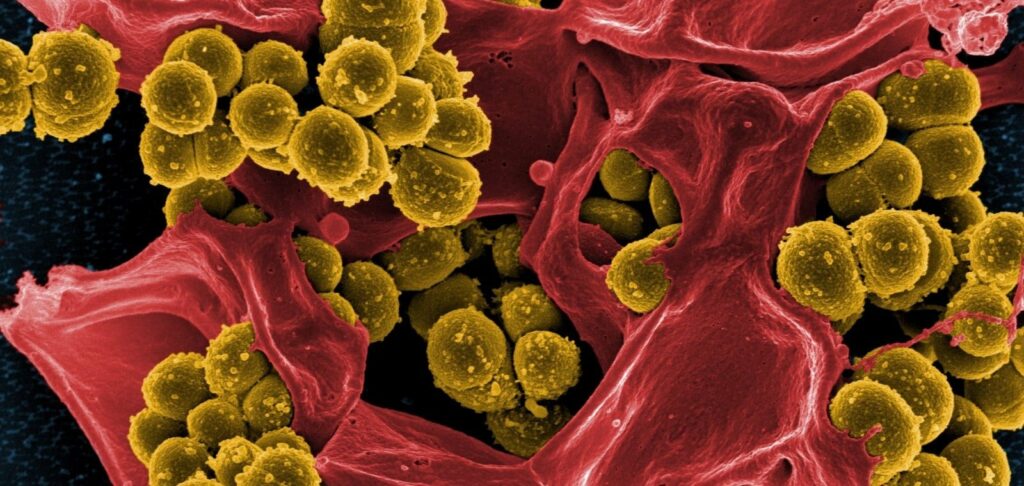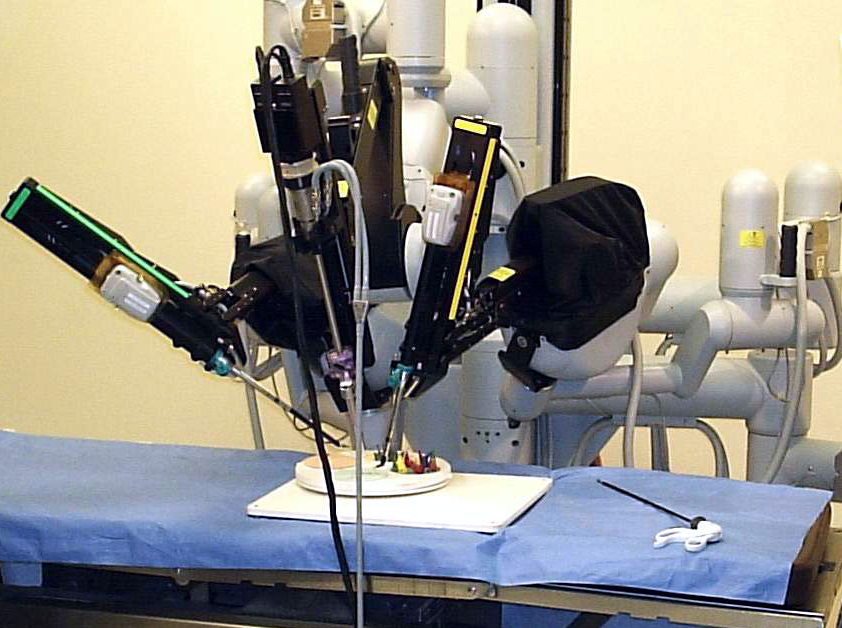
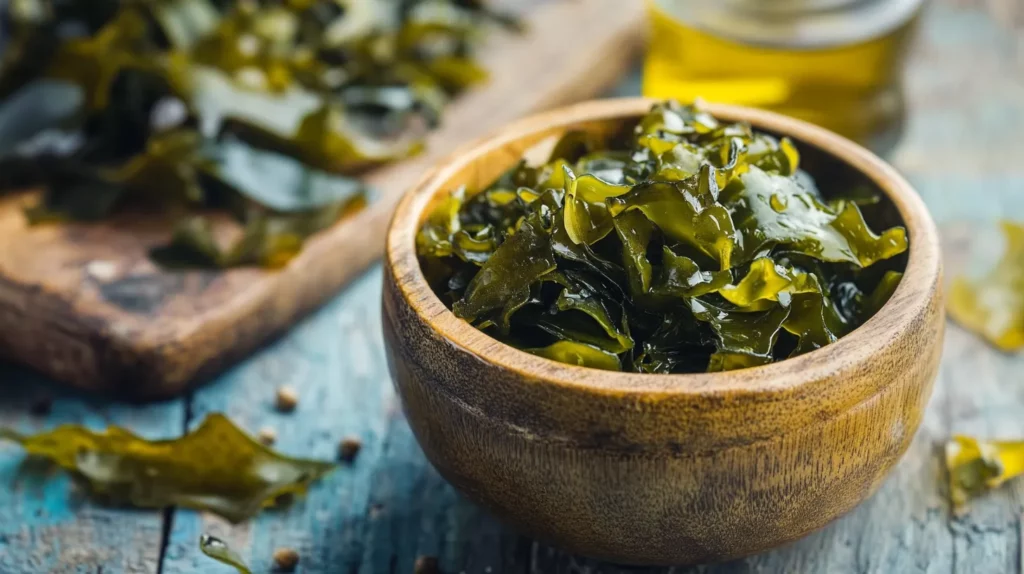
Kelp: a source of iodine and detoxification of the body
In recent years, interest in kelp (seaweed) has grown significantly due to its ability to not only supply iodine to the body, but also to actively participate in detoxification and improving overall health.
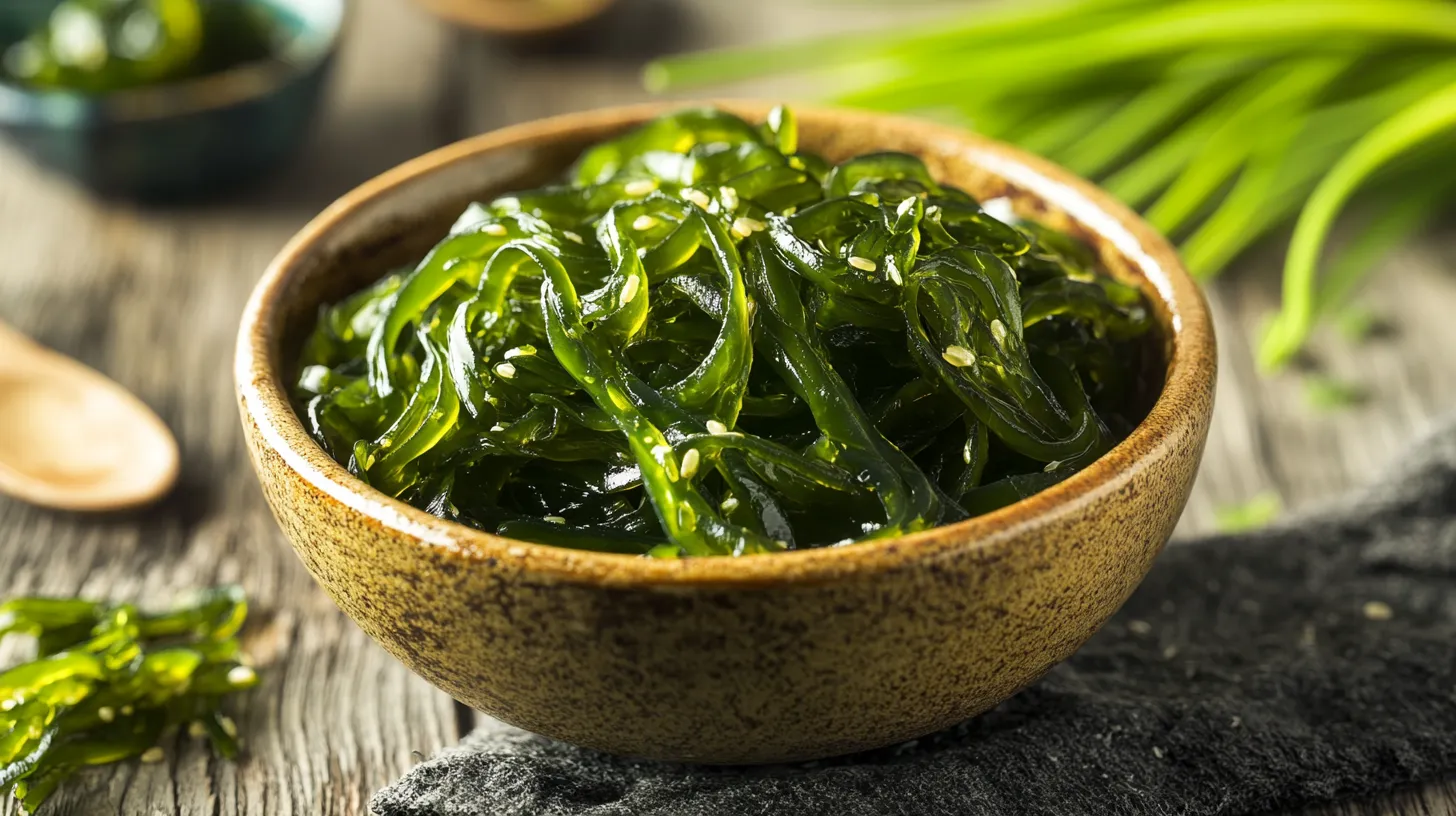
Modern research shows that kelp contains more than 40 trace and macronutrients, including organic iodine, which is easier to absorb than synthetic supplements.
Supporting thyroid health
Numerous scientific papers confirm the importance of kelp for thyroid health and the prevention of iodine deficiency, which remains a common problem in many countries.
A 2019 study found that regular consumption of kelp products reduced the risk of hypothyroidism and improved overall metabolism.
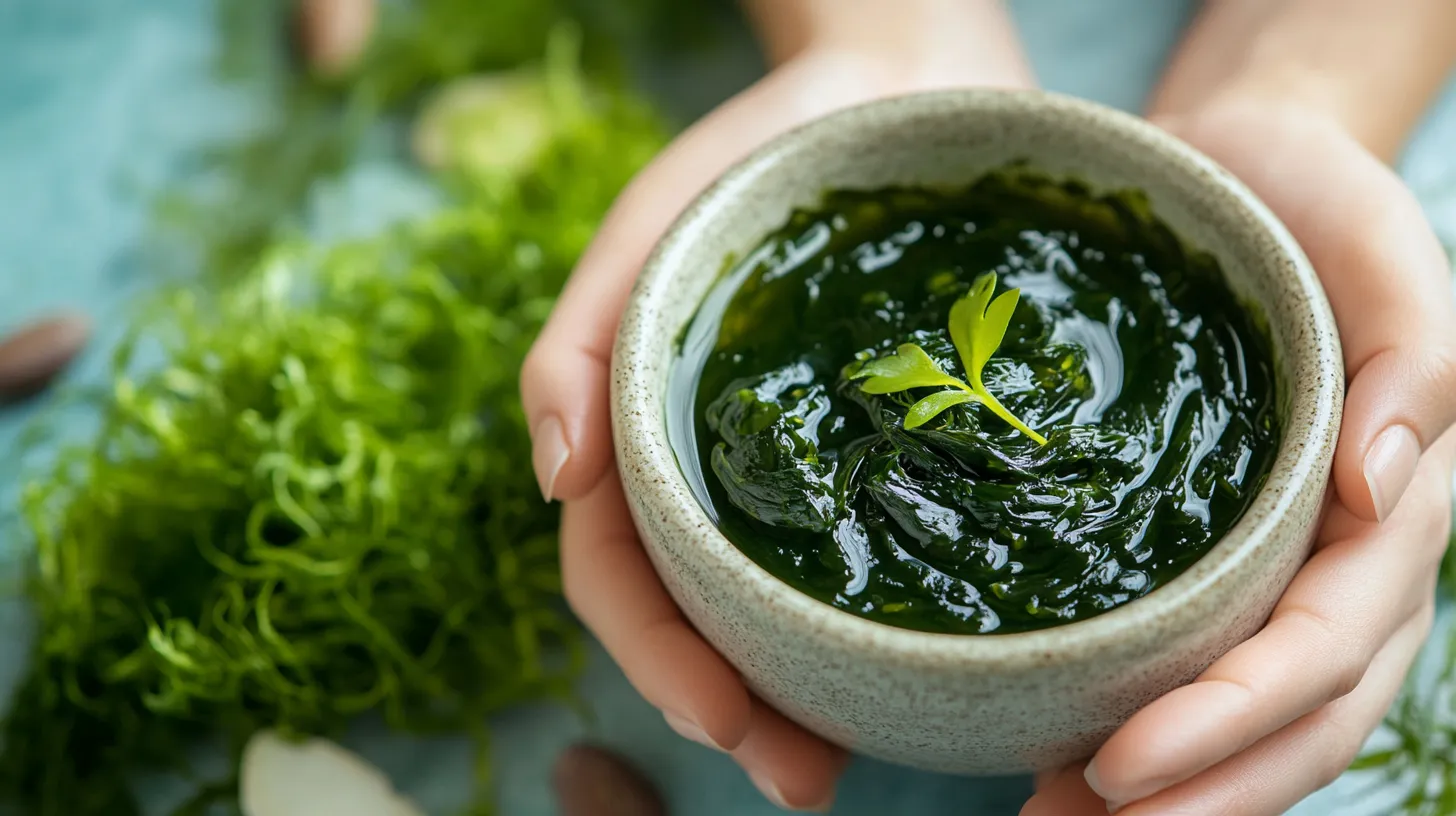
Kelp as a natural sorbent
In addition, the alginic acid salts contained in kelp have powerful sorbing properties , helping to eliminate toxins, heavy metals and radionuclides.
This makes kelp an important element for cleansing the body in conditions of environmental pollution.
Modern uses of kelp include its use as a natural sorbent to reduce cholesterol and prevent cardiovascular disease.

Laminaria in cosmetology
Kelp also plays an important role in skin care.
Recent studies confirm its ability to stimulate cell regeneration, moisturize and improve skin elasticity, which makes it popular in cosmetology.
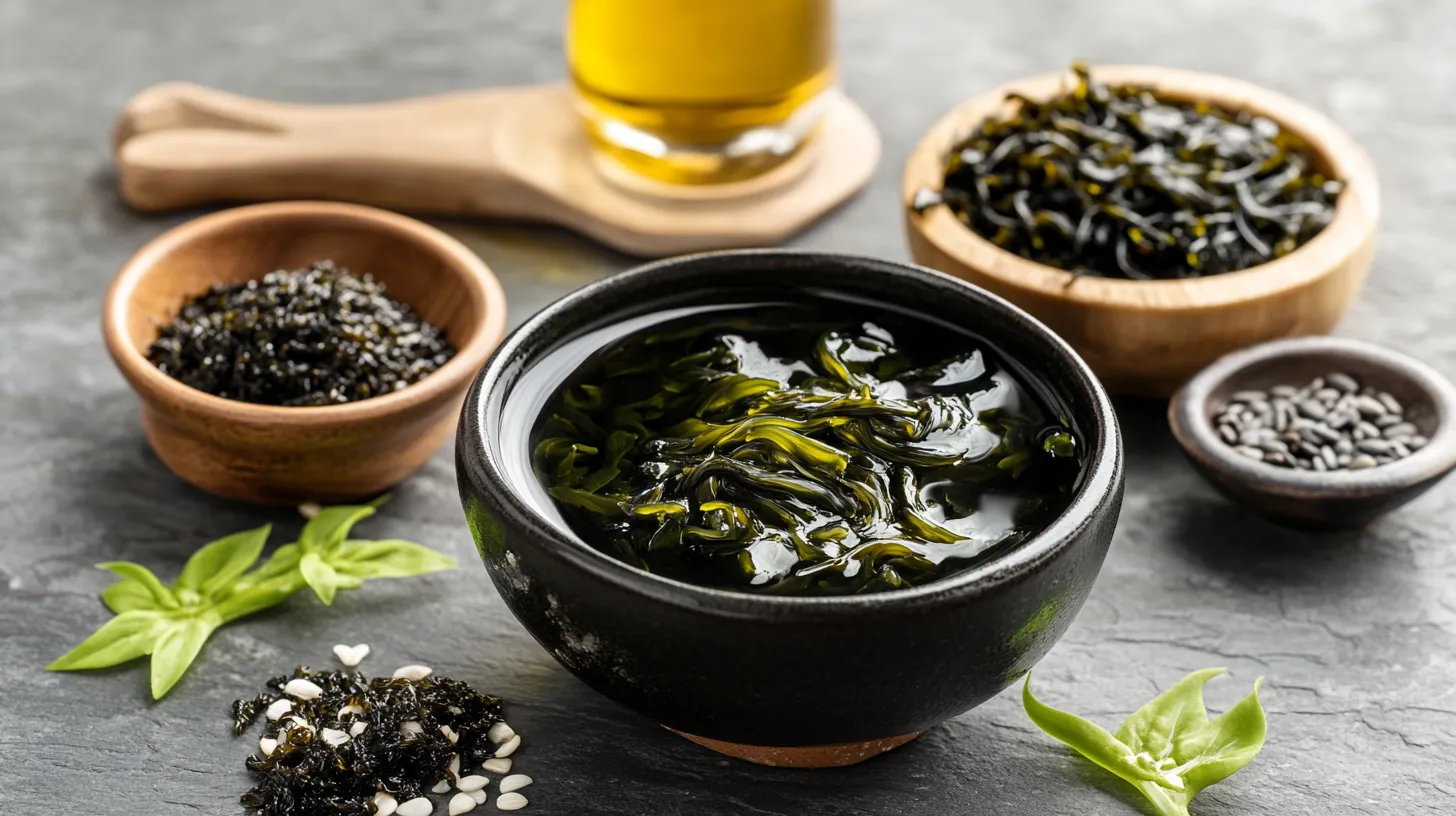
Many kelp-based products, such as masks and creams, contain up to 70% of this algae’s active ingredients, improving the texture and appearance of the skin.
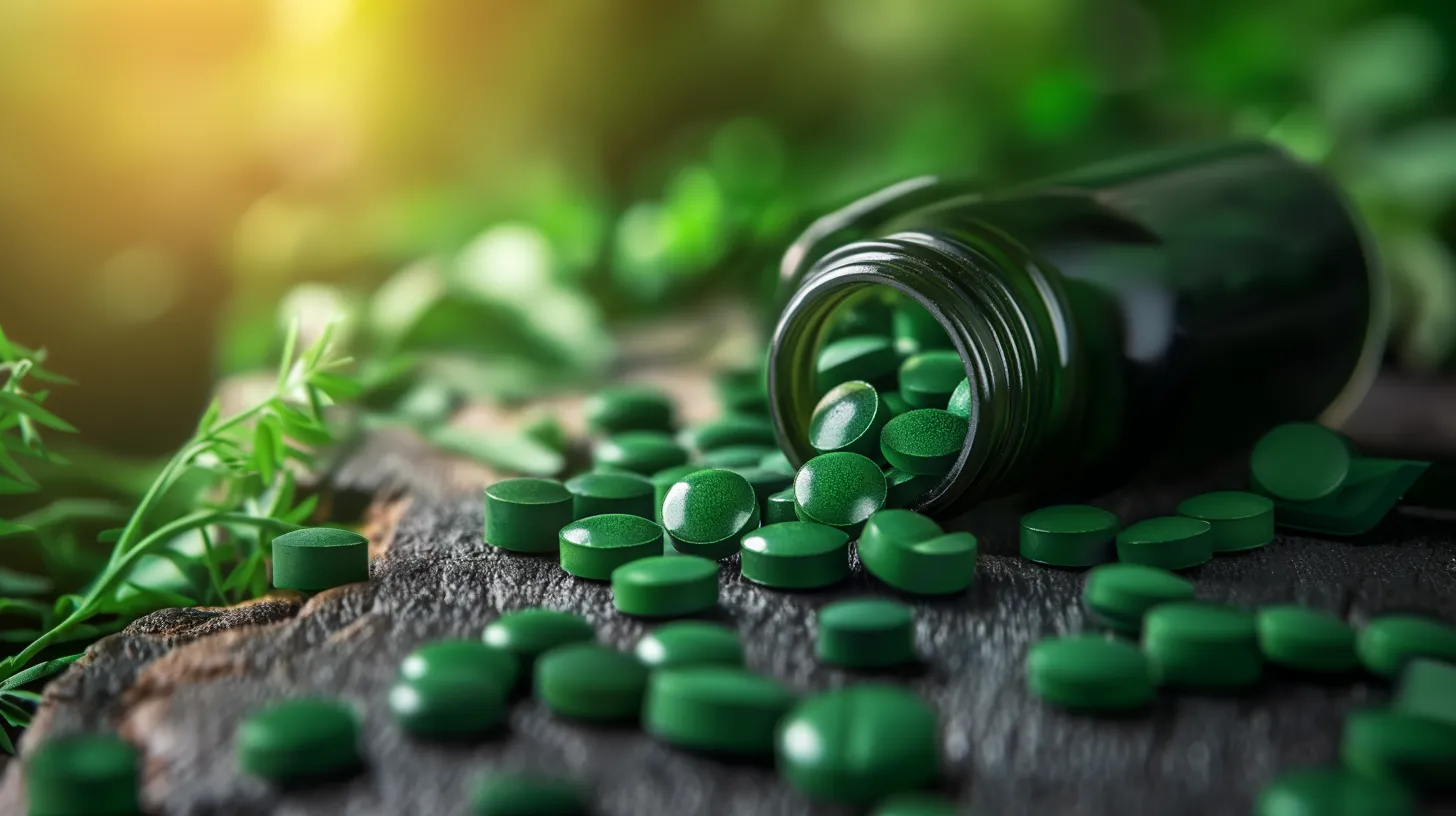
Spirulina: nature’s superfood
Nutritional value of spirulina
Spirulina (Spirulina platensis) is deservedly considered one of the most nutritious algae on the planet.
Modern research confirms its many health benefits, including its high protein content (up to 60% by weight), antioxidants and anti-inflammatory substances.
Research in recent years has revealed its potential to support the immune system and reduce inflammation in the body.
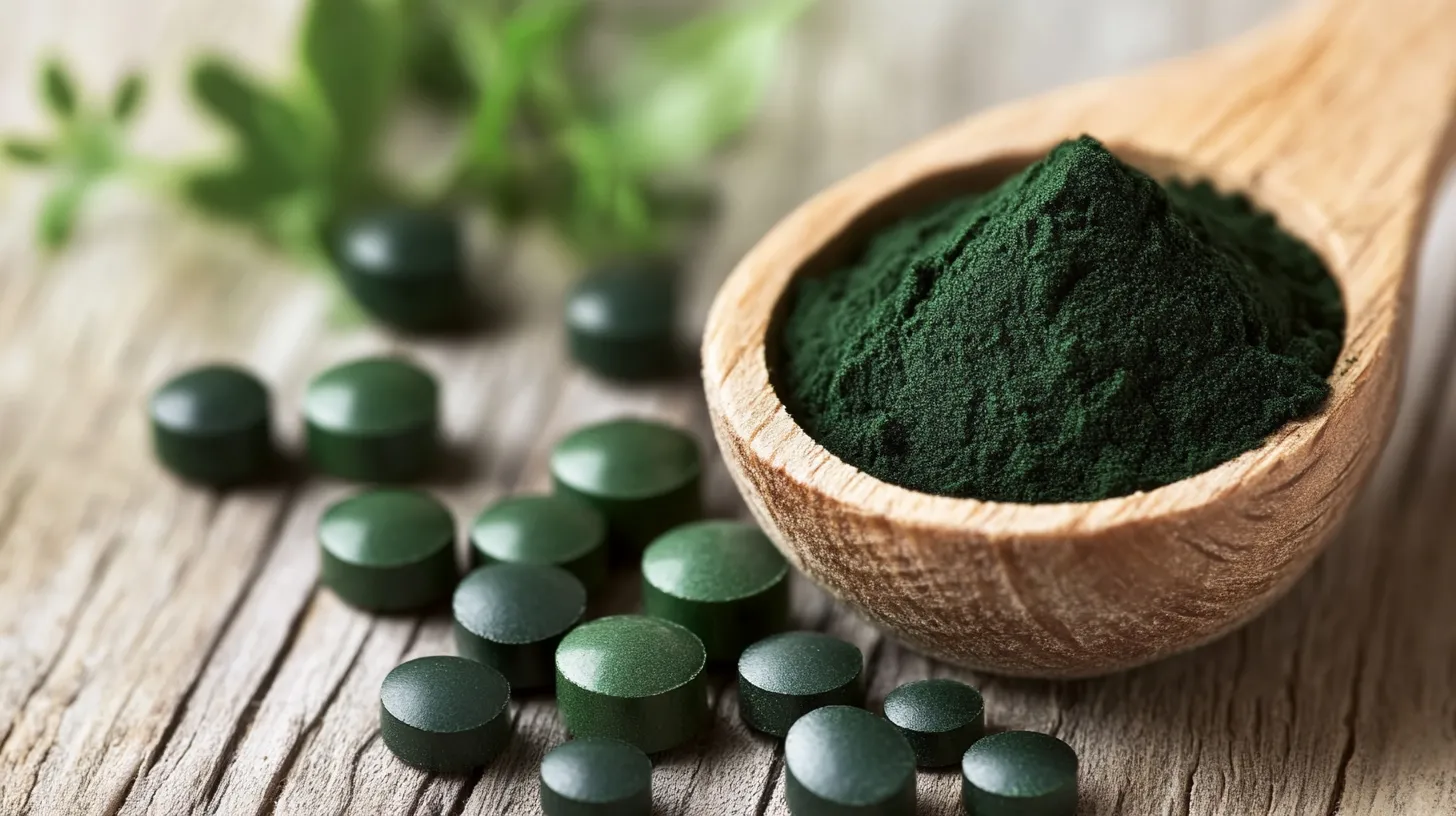
Spirulina and health support
Spirulina contains a full range of vitamins, trace elements and amino acids, making it a valuable addition to the diet, especially for vegetarians and people who are deficient in certain nutrients.
New research has shown that spirulina helps improve hemoglobin levels and can be used effectively to prevent and treat anemia.
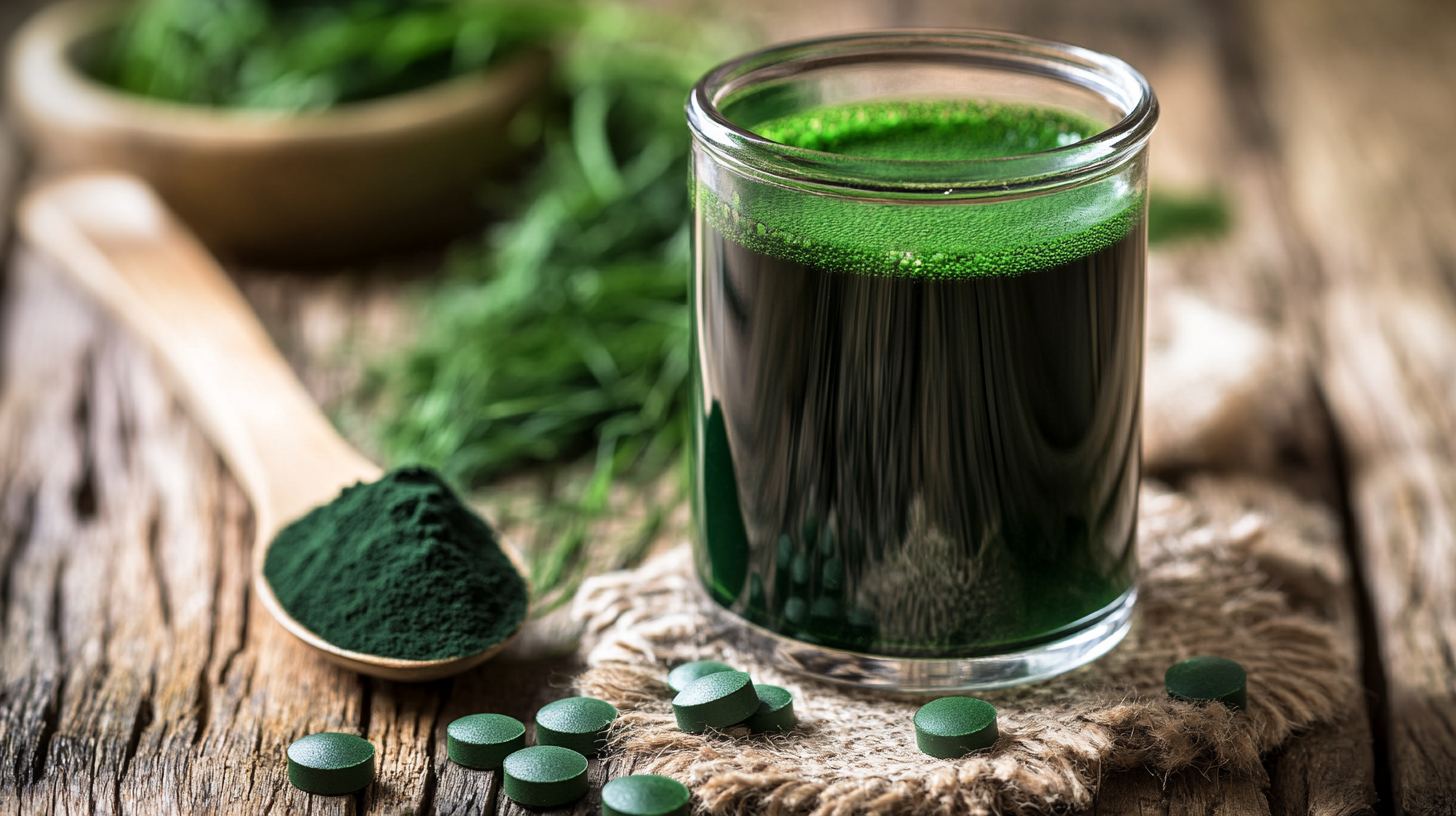
Antioxidant properties of spirulina
It is also worth noting that spirulina has antioxidant properties due to its high content of beta-carotene, which protects cells from oxidative stress and slows down the aging process.
Recent studies have shown that consuming spirulina helps reduce the effects of harmful free radicals on the body and can help prolong life.
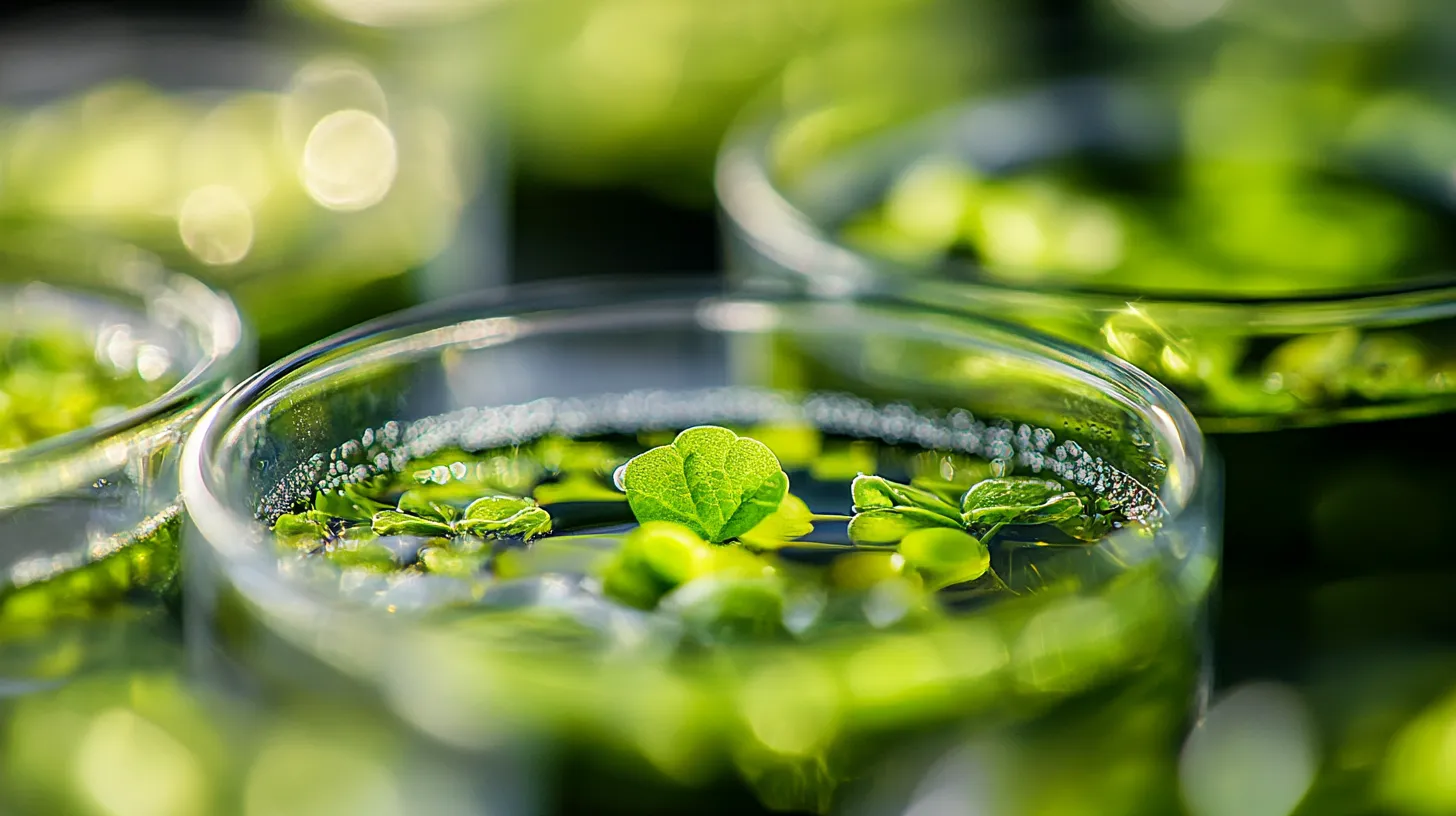
How to incorporate more algae into your diet
In order to maximize the health benefits of kelp and spirulina, it’s important to know how to incorporate them into your daily diet. Here are a few simple ways:
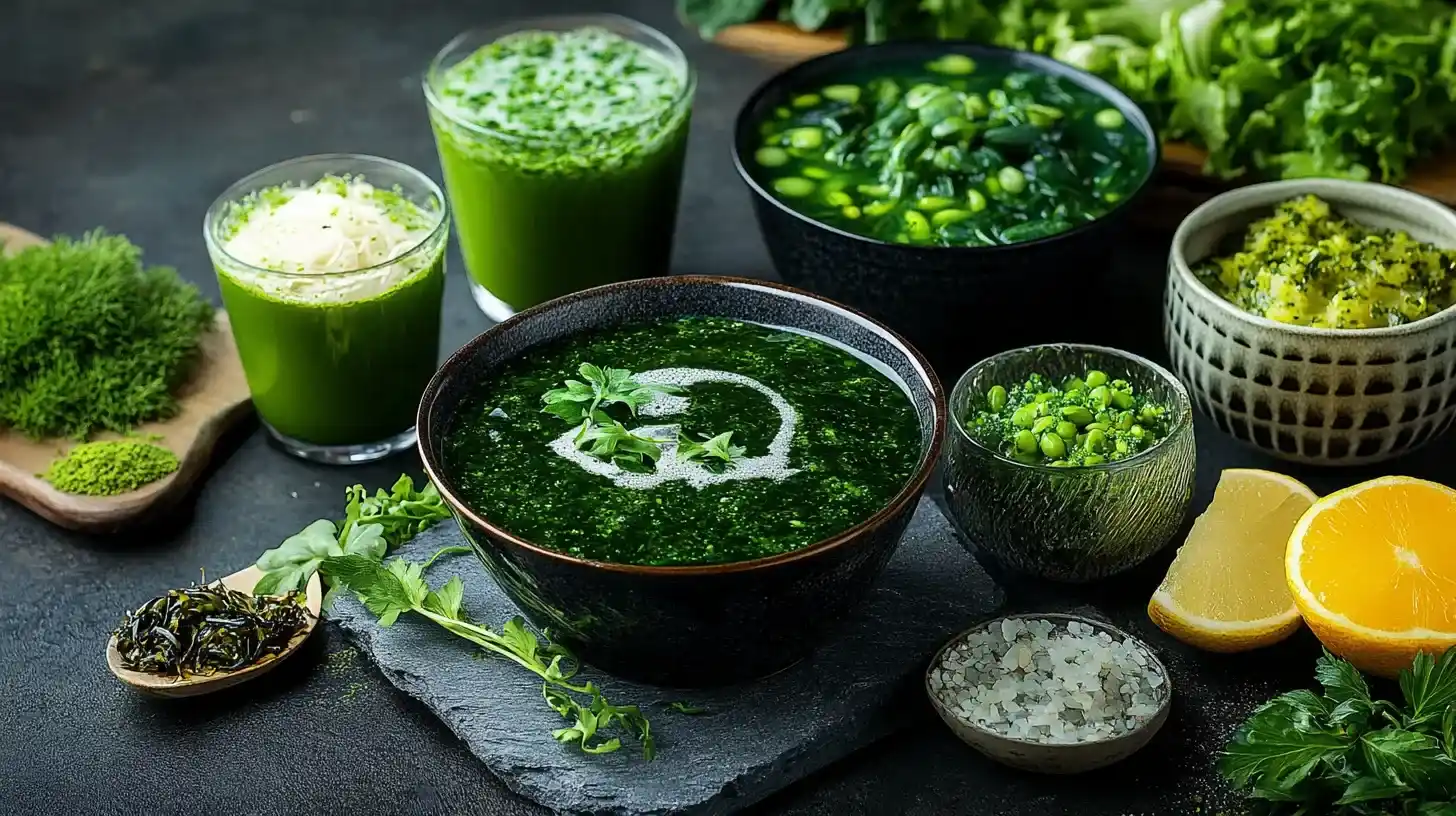
Laminaria (seaweed)
- Salads: Kelp is often used fresh or pickled as a salad ingredient. It goes well with vegetables, avocado, tofu or eggs.
- Soups: Add dried or fresh kelp to soups. In Asian cuisine, it is often used as a base for soups.
- Dried kelp: Dried kelp can be added to rice, pasta or as a base for appetizers.
- Smoothies: Powdered seaweed can be a great addition to green smoothies, providing iodine and other micronutrients.
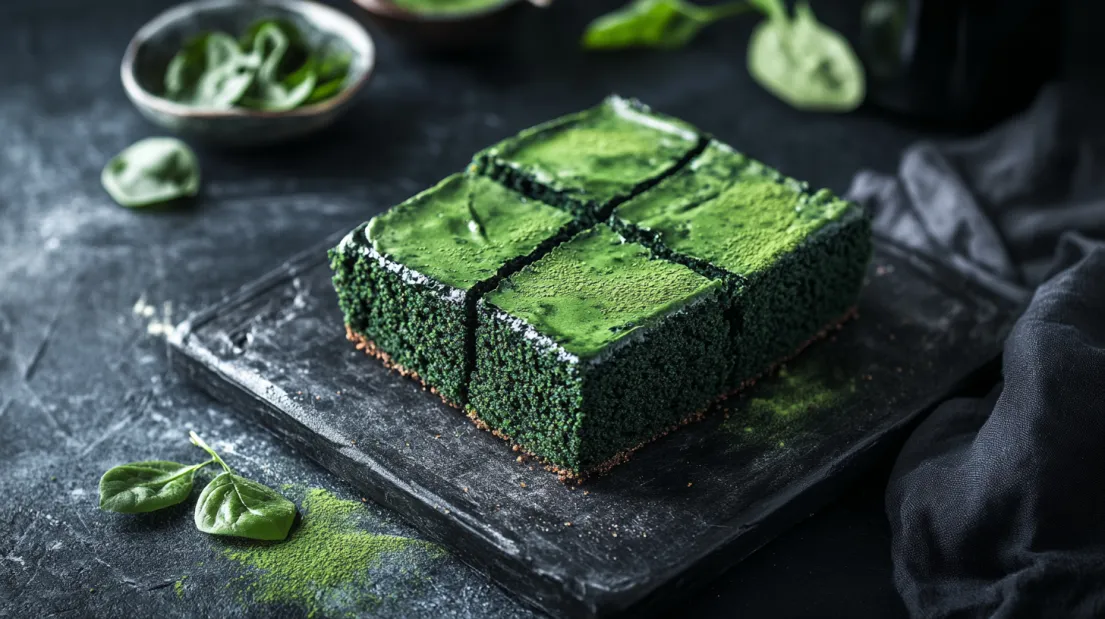
Спирулина
- Spirulina Powder: One of the most popular ways to consume spirulina is by adding its powder to smoothies or shakes. About 1-2 teaspoons of spirulina will be enough to enrich the drink with protein and antioxidants.
- Spirulina in yogurt: You can add spirulina powder to yogurt or porridge for your morning meal.
- Capsules or tablets: Spirulina is also available in capsule or tablet form, which is an easy way to incorporate it into your diet for those who don’t want to change the flavor of food.
- Spirulina in baked goods: Spirulina powder can be used in baked goods, from breads to pancakes, adding nutritional value to dishes.
Таблица рекомендаций по употреблению водорослей
| Algae | Quantity per day | Method of use |
|---|---|---|
| Kelp | 30-50 g | Salads, soups, dried as an appetizer |
| Spirulina | 1–2 teaspoons | Powder in smoothies, yogurt, capsules |
Tips for incorporating algae into your diet:
- Start with small portions if you have not consumed algae before and gradually increase the amount.
- Choose organic algae grown in clean ecological conditions to avoid contaminants.
- Include seaweed in different dishes to diversify your diet.
New horizons of algae application
Use in biotechnology
Modern technologies have made it possible to significantly expand the range of applications of kelp and spirulina.
In addition to traditional food and cosmetic uses, both algae are actively used in biotechnology, including the development of functional foods and pharmaceuticals.
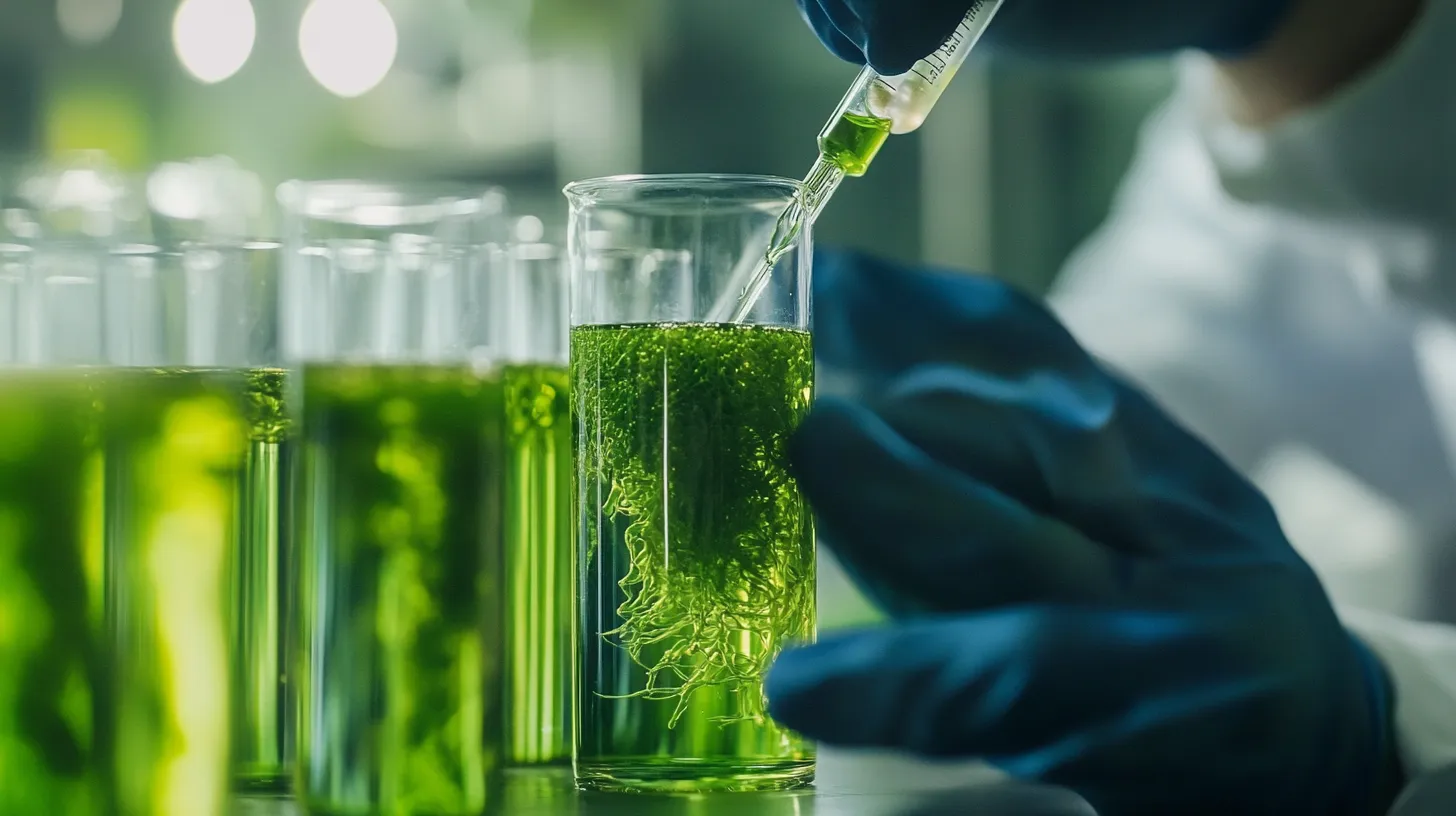
It is important to remember that the quality of algae directly depends on where it grows: spirulina and kelp grown in clean ecological conditions are safer and healthier.
Conclusion
Laminaria and spirulina remain important components in the fight for human health and longevity.
They have a complex effect on the body and are affordable sources of essential nutrients, iodine, protein and antioxidants.


